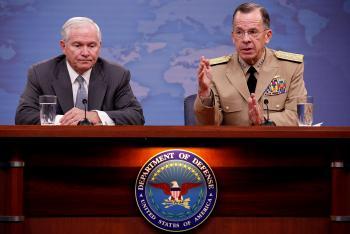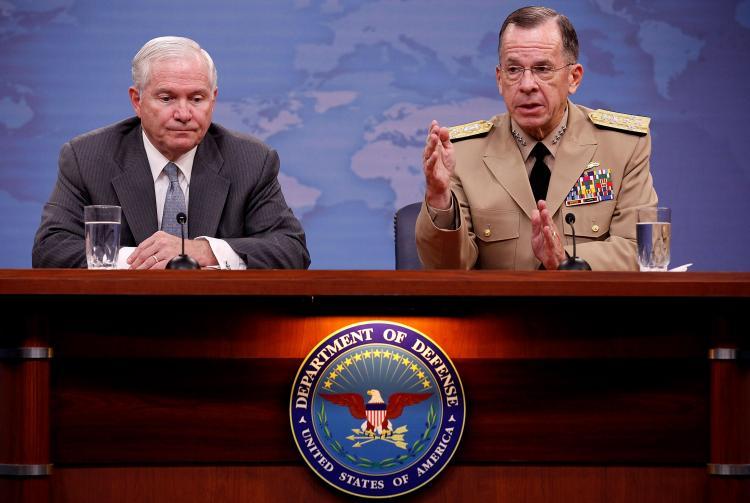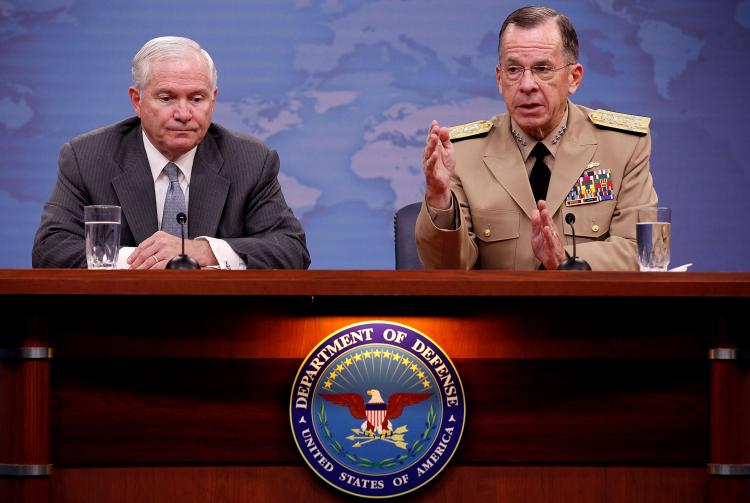As tensions escalate between the Pentagon and whistle-blower website Wikileaks, human rights groups are now calling for Wikileaks founder Julian Assange to censor information on present and future Afghanistan war documents to protect endangered civilians.
According to an Associated Press (AP) article published Tuesday, human rights organizations like the Afghan Independent Human Rights Commission (AIHRC), and Amnesty International (AI) have sent e-mails to Assange calling for the removal of Afghan civilian names from the 77,000 classified documents posted on the website last month.
The groups also want civilian names scrubbed from future disclosures, due to the increased threat of reprisal by insurgent forces.
“There was no consideration about civilian lives,” AIHRC member Nader Nadery said, referring to the posting by Wikileaks of the civilian names, and the recent increase of attacks against Afghan civilians by Taliban militants.
E-mails were also sent to Wikileaks by The Campaign for Innocent Victims in Conflict, the Open Society Institute, and the International Crisis Group, according to AP.
Amnesty International (AI) issued a press release Tuesday, stating that the Taliban “and other insurgent groups should be investigated and prosecuted for war crimes,” based on information gleaned from a recent U.N. report on civilian casualties in Afghanistan.
The U.N. report saw a 95 percent increase in the first half of 2010 in civilian executions and assassinations by Taliban forces, compared to data from the same period last year.
The report, prepared by the U.N. Assistance Mission in Afghanistan (UNAMA), also concluded that attacks by Taliban and other anti-government forces “accounted for more than 76 percent of civilian casualties and 72 percent of deaths,” in Afghanistan, according to the Amnesty press release.
Wikileaks vs. the Pentagon
In a related article published Aug. 8 AP interviewed a Wikileaks spokesman who goes by the name “Daniel Schmitt,” to protect his identity. Schmitt downplayed the threat posed to civilians and others by the release of the “Afghan Diary” documents, and said that the group had sought help from U.S. authorities.
Schmitt said that Wikileaks “conveyed a request to the White House prior to the publication, asking that the International Security Assistance Force (ISAF) provide us with reviewers,” Schmitt said. “That request remains open. However, the Pentagon has stated that it is not interested in ‘harm minimization’ and has not contacted us, directly, or indirectly to discuss this offer.”
Pentagon spokesman Geoff Morrel went on record regarding the Wikileaks leaks, in a press conference last Thursday. “Wikileaks has made no such request directly to the Department of Defense (DoD),” he said.
Last month, White House spokesman Tommy Vietor said that Wikileaks’ claims of attempting to involve U.S. government officials in a reviewing process were “absolutely, unequivocally not true.”
Morrel went even further in his press conference, demanding that Wikileaks return all versions of DoD documents, and erase them from their databases and website, and demanded that Wikileaks discontinue its solicitation of classified materials, period.
He also said that following these demands amounted to “doing the right thing,” adding that “if doing the right thing is not good enough for them, then we will figure out what other alternatives we have to compel them to do the right thing. Let me leave it at that.”
Assange was slated to appear Monday at London’s Frontline Club, a group for independent journalists, to rebut the Pentagon demands, but the event was “postponed until further notice” on Sunday, according to a Twitter post by Frontline event coordinator Patrick Smith.
Wikileaks spokesman Daniel Schmitt said that he sees no change of course by his group of whistle-blowers in revealing leaked, classified documents, despite the risks.
“I can assure you that we will keep publishing documents—that’s what we do.”
According to an Associated Press (AP) article published Tuesday, human rights organizations like the Afghan Independent Human Rights Commission (AIHRC), and Amnesty International (AI) have sent e-mails to Assange calling for the removal of Afghan civilian names from the 77,000 classified documents posted on the website last month.
The groups also want civilian names scrubbed from future disclosures, due to the increased threat of reprisal by insurgent forces.
“There was no consideration about civilian lives,” AIHRC member Nader Nadery said, referring to the posting by Wikileaks of the civilian names, and the recent increase of attacks against Afghan civilians by Taliban militants.
E-mails were also sent to Wikileaks by The Campaign for Innocent Victims in Conflict, the Open Society Institute, and the International Crisis Group, according to AP.
Amnesty International (AI) issued a press release Tuesday, stating that the Taliban “and other insurgent groups should be investigated and prosecuted for war crimes,” based on information gleaned from a recent U.N. report on civilian casualties in Afghanistan.
The U.N. report saw a 95 percent increase in the first half of 2010 in civilian executions and assassinations by Taliban forces, compared to data from the same period last year.
The report, prepared by the U.N. Assistance Mission in Afghanistan (UNAMA), also concluded that attacks by Taliban and other anti-government forces “accounted for more than 76 percent of civilian casualties and 72 percent of deaths,” in Afghanistan, according to the Amnesty press release.
Wikileaks vs. the Pentagon
In a related article published Aug. 8 AP interviewed a Wikileaks spokesman who goes by the name “Daniel Schmitt,” to protect his identity. Schmitt downplayed the threat posed to civilians and others by the release of the “Afghan Diary” documents, and said that the group had sought help from U.S. authorities.
Schmitt said that Wikileaks “conveyed a request to the White House prior to the publication, asking that the International Security Assistance Force (ISAF) provide us with reviewers,” Schmitt said. “That request remains open. However, the Pentagon has stated that it is not interested in ‘harm minimization’ and has not contacted us, directly, or indirectly to discuss this offer.”
Pentagon spokesman Geoff Morrel went on record regarding the Wikileaks leaks, in a press conference last Thursday. “Wikileaks has made no such request directly to the Department of Defense (DoD),” he said.
Last month, White House spokesman Tommy Vietor said that Wikileaks’ claims of attempting to involve U.S. government officials in a reviewing process were “absolutely, unequivocally not true.”
Morrel went even further in his press conference, demanding that Wikileaks return all versions of DoD documents, and erase them from their databases and website, and demanded that Wikileaks discontinue its solicitation of classified materials, period.
He also said that following these demands amounted to “doing the right thing,” adding that “if doing the right thing is not good enough for them, then we will figure out what other alternatives we have to compel them to do the right thing. Let me leave it at that.”
Assange was slated to appear Monday at London’s Frontline Club, a group for independent journalists, to rebut the Pentagon demands, but the event was “postponed until further notice” on Sunday, according to a Twitter post by Frontline event coordinator Patrick Smith.
Wikileaks spokesman Daniel Schmitt said that he sees no change of course by his group of whistle-blowers in revealing leaked, classified documents, despite the risks.
“I can assure you that we will keep publishing documents—that’s what we do.”






